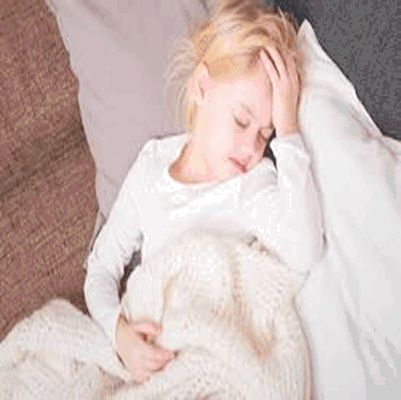Anemia
Overview
Anemia – Causes, Symptoms & Homeopathic Treatment
Overview
Anemia is a condition in which the body does not have enough healthy red blood cells (RBCs) to carry adequate oxygen to the tissues. This leads to weakness, fatigue, and low energy.
There are different types of anemia, each with its own causes. It may be temporary or chronic, ranging from mild to severe. If left untreated, anemia can also be a warning sign of serious underlying health conditions.
When RBC count or hemoglobin levels drop below normal, the blood carries less oxygen, leading to weakness and various health issues.
Common Symptoms of Anemia
-
Persistent weakness or fatigue
-
Dizziness or feeling faint
-
Cold hands and feet
-
Headaches
-
Pale skin, brittle nails
-
Difficulty concentrating
-
Shortness of breath or chest discomfort
-
Irregular or rapid heartbeat
-
Poor mental focus
Causes of Anemia
-
Nutritional deficiencies – Iron, Vitamin B12, Folic Acid deficiency
-
Excessive blood loss – Heavy periods, ulcers, piles, injury, surgery
-
Chronic illnesses – Kidney disease, TB, cancer, autoimmune disorders
-
Genetic factors – Thalassemia, Sickle Cell Anemia
-
Poor digestion/malabsorption – Worm infestation, weak gut, improper nutrient absorption
Homeopathic Medicines for Anemia
(Note: Medicine selection should always be based on individual symptoms & under expert homeopathic guidance.)
-
Ferrum Phosphoricum 6X / 12X
-
Early stage of anemia
-
Weakness after illness, low-grade fever
-
Pale face, tired body
-
-
China (Cinchona Officinalis) 200
-
Anemia after blood loss (injury, heavy periods)
-
Dizziness, ringing in ears
-
Weakness even after mild exertion
-
-
Natrum Muriaticum 200
-
Headache & hair fall with anemia
-
Weakness after grief or stress
-
Desire for salty food
-
-
Ferrum Metallicum 200
-
Pale skin, face turns red after light work
-
Weak digestion, aversion to eggs
-
Dizziness & weakness
-
-
Arsenicum Album 200
-
Severe weakness with restlessness
-
Burning pains, anxiety
-
Useful in long-standing anemia
-
-
Calcarea Phosphorica 200
-
Anemia in young girls during puberty
-
Weak bones, delayed growth, late periods
-
Diet & Lifestyle Tips
-
Eat iron-rich foods: green leafy vegetables, beetroot, dates, pomegranate, jaggery
-
Add Vitamin C-rich fruits (lemon, amla) for better iron absorption
-
Take proper rest & manage stress
-
Deworming if intestinal worms are suspected
-
Regular health check-ups if blood loss is continuous
Conclusion
Anemia is not just “low hemoglobin,” but also a sign of nutritional deficiency or chronic illness. Homeopathy not only improves hemoglobin naturally but also treats the root cause of the problem safely.
Treatment at Spaks Homeopathy
-
Root cause treatment – not just temporary relief
-
Safe & natural remedies – no side effects
-
Personalized medicine selection
-
Special expertise in Anemia, Male Disorders, STD, Piles, Fissure, Fistula & more
-
Diet & lifestyle guidance for long-term recovery
Address: E-38, Budh Vihar, Badarpur, New Delhi – 110044
Email: info@spakshomeopathy.com
Phone: +91 8700458818
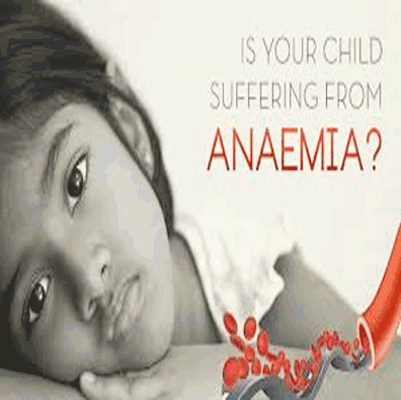
Asthma
Spaks Homeopathy – Asthma Care
Overview
Asthma is a chronic respiratory condition where the airways become narrow and produce excess mucus, making it difficult to breathe.
Asthma attacks may be triggered by allergies, dust, cold weather, infections, exercise, medicines, or even stress and emotions.
At Spaks Homeopathy, we focus on treating not just the symptoms, but the root cause of asthma—strengthening the lungs, reducing sensitivity to triggers, and improving overall immunity.
Symptoms of Asthma
-
Breathing faster than usual or difficulty breathing
-
Wheezing or noisy breathing
-
Persistent cough (worse at night or early morning)
-
Chest tightness or heaviness
-
Fast heartbeat
-
Head congestion
-
Sore, itchy, or scratchy throat
-
Feeling tired or weak
Spaks Homeopathy Approach
-
Gentle Medicines – Reduce airway inflammation and mucus formation.
-
Improves Lung Function – Helps restore natural, easy breathing.
-
Reduces Triggers – Builds resistance against allergies, infections, and environmental factors.
-
Safe for All Ages – Effective for children, adults, and elderly patients.
-
No Side Effects – Natural, holistic healing with long-lasting results.
With Spaks Homeopathy, you can breathe freely, stay active, and live life without the constant fear of asthma attacks.
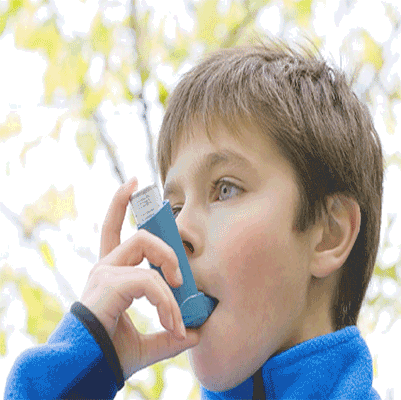
Cerebral palsy-
Overview
Cerebral palsy could be a disorder of movement, tone or posture that's caused by harm that happens to the immature, developing brain, most frequently before birth.
cerebral palsy cause impaired movement releted to abnormal reflexes, floppiness or rigidity of the limbs and trunk, abnormal posture,
People with encephalopathy might have issues swallowing and unremarkably have ocular muscle imbalance, within which the eyes do not concentrate on identical object.
People with encephalopathy conjointly might suffer reduced vary of motion at numerous joints of their bodies because of muscle stiffness.
Symptoms
- Variations in tone, like being either too stiff or too floppy
- Stiff muscles and exaggerated reflexes (spasticity)
- Stiff muscles with normal reflexes (rigidity)
- Lack of muscle coordination (ataxia)
- Tremors or involuntary movements
- Slow, writhing movements (athetosis)
- Delays in reaching motor skills milestones, such as pushing up on arms, sitting up alone or crawling
- Favoring one aspect of the body, like reaching with only 1 hand or dragging a leg whereas travel
- Difficulty walking, like walking on toes, a hunkered down gait, a scissors-like gait with knees crossing, a large gait or associate degree asymmetrical gait
- Excessive drooling or problems with swallowing
- Difficulty with sucking or eating
- Delays in speech development or difficulty speaking
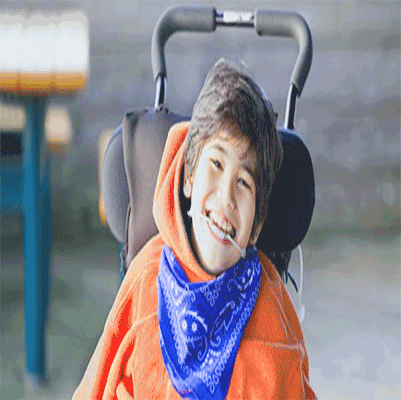
Chickenpox,
Overview – Chickenpox
Chickenpox is a highly contagious viral infection caused by the Varicella Zoster Virus (VZV). It mostly affects children but can also occur in adults. In most cases, it is mild and self-limiting, but in infants or people with weak immunity, it may lead to serious complications.
The disease is best known for its itchy, blister-like rash along with flu-like symptoms. While the illness usually resolves on its own with time, home care and supportive treatment play an important role in reducing discomfort, itching, and pain. Treatment mainly focuses on managing the symptoms until recovery.
Symptoms – Chickenpox
The itchy rash generally appears 10 to 21 days after exposure to the virus and lasts about 5 to 10 days.
Other symptoms may appear 1–2 days before the rash, such as:
-
Fever
-
Loss of appetite
-
Headache
-
Tiredness or fatigue
-
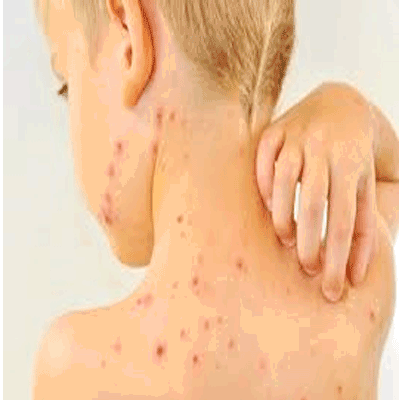
conjunctivitis.
Overview
Conjunctivitis (Pink Eye) is an infection or inflammation of the conjunctiva – the thin, transparent membrane that covers the white part of the eyeball and lines the eyelid.
When small blood vessels in the conjunctiva become inflamed, they become more visible, giving the eye a reddish or pinkish appearance.
It can be caused by:
-
Infections: Viruses, bacteria
-
Non-infectious causes: Allergies, dust, smoke, fumes, or irritants
Conjunctivitis is usually mild but can be highly contagious in infectious cases. Early treatment and hygiene can prevent complications.
Symptoms
-
Redness in one or both eyes
-
Itchiness in one or both eyes
-
Gritty or burning sensation in the eyes
-
Sticky discharge that may form crusts overnight, causing difficulty in opening the eyes in the morning
-
Excessive tearing or watery eyes
-
Swelling of eyelids in some cases
-
Sensitivity to light (photophobia) in severe cases
Effects
-
Discomfort and irritation in daily activities (reading, working, screen use)
-
Risk of spreading to family members or classmates (if infectious)
-
Temporary blurred vision
-
Difficulty wearing contact lenses
-
If untreated or severe: may cause complications like corneal ulcers, keratitis, uveitis, or corneal perforation
Treatment
Conventional Treatment
-
Viral Conjunctivitis: Usually self-limiting, cold compress and artificial tears help relieve symptoms
-
Bacterial Conjunctivitis: Antibiotic eye drops or ointments
-
Allergic Conjunctivitis: Antihistamine or anti-inflammatory eye drops
-
Maintain good hygiene: Wash hands, avoid touching/rubbing eyes, avoid sharing towels, eyewear, or cosmetics
Spaks Homeopathy Treatment
At Spaks Homeopathy, treatment is focused on relieving discomfort, reducing recurrence, and improving eye immunity naturally. Remedies are prescribed based on individual symptoms:
-
Euphrasia (Eyebright) – for burning, redness, and watery eyes with sensitivity to light
-
Belladonna – for intense redness, throbbing eye pain, and photophobia
-
Pulsatilla – for thick yellow-green discharge and itching, worse in warm rooms
-
Apis mellifica – for swollen eyelids with stinging pain and watery discharge
-
Argentum nitricum – for mucopurulent discharge with sticky eyelids in the morning
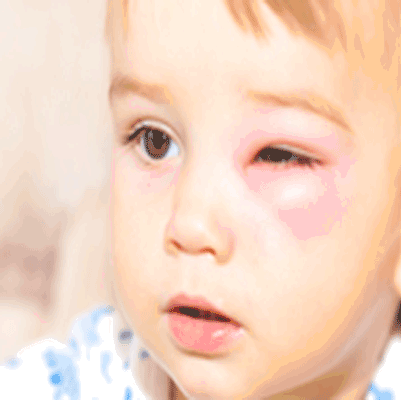
Croup-
Overview
Croup is caused by an acute viral infection of the upper respiratory tract. It is also called laryngotracheobronchitis since it affects the larynx (voice box), trachea (windpipe), and bronchi (airways).
The infection leads to inflammation, swelling, and increased mucus production in the airways, which results in airflow obstruction and the characteristic “barking cough.”
Croup is most common in children between 6 months to 3 years, though it can occur at any age. Most cases are mild and resolve on their own, but in some cases, hospitalization may be required due to severe breathing difficulties.
It continues to be one of the most frequent causes of respiratory distress in young children.
Symptoms of Croup
-
Cold and cough (often starting like a common cold)
-
Barking cough (resembles a seal’s bark, worse at night)
-
Hoarseness of voice
-
Difficulty swallowing
-
Stridor (high-pitched, noisy breathing, especially on inhalation)
-
Fever (mild to moderate)
-
Restlessness and irritability
-
In severe cases: rapid breathing, bluish lips/skin (cyanosis), fatigue
?? When to Seek Medical Help
-
Persistent stridor at rest
-
Difficulty in breathing or swallowing
-
Drooling, inability to speak or cry
-
High fever with worsening cough
-
Signs of cyanosis (bluish skin/lips)
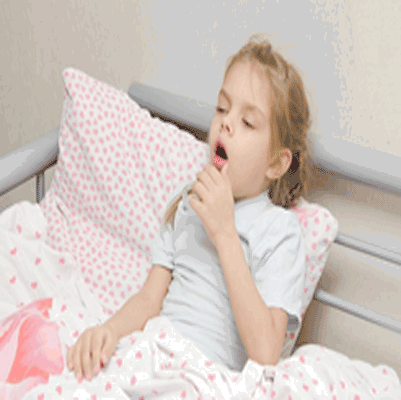
Epilepsy-
Epilepsy – A Neurological Disorder
Overview
Epilepsy refers to sudden, uncontrolled electrical disturbances in brain activity. These disturbances can cause changes in behavior, movement, awareness, and sensation.
Most epileptic seizures involve loss of awareness and shaking or jerking movements of the body. Some seizures may only cause brief staring spells. Typically, seizures last less than a few minutes, but confusion or tiredness may follow.
When seizures happen repeatedly, the condition is diagnosed as epilepsy (chronic neurological disorder).
Symptoms
Some people experience a warning sign (aura) before a seizure, which may include:
-
Headache
-
Blurred vision or visual changes
-
Hearing unusual sounds
-
Smelling strange odors (e.g., smoke or chemicals)
During a Seizure:
-
Uncontrollable body movements (jerking, stiffening, or facial twitches)
-
Staring spells
-
Difficulty breathing
-
Drooling
-
Loss of bladder or bowel control
-
Loss of consciousness
-
Confusion or memory gaps after the seizure
Effects if Untreated
If not properly managed, epilepsy can lead to:
-
Physical injury during seizures (falls, accidents)
-
Memory problems or cognitive decline
-
Emotional stress, anxiety, and depression
-
Social difficulties due to stigma or unpredictability of seizures
-
Rarely, status epilepticus (a prolonged seizure) which can be life-threatening
Treatment Options
Conventional Treatment
-
Anti-epileptic drugs (AEDs) to reduce or control seizures
-
Lifestyle changes (stress management, sleep hygiene, avoiding triggers)
-
Surgery or nerve stimulation therapy in severe or drug-resistant cases
Homeopathic Support (Spaks Homeopathy)
Spaks Homeopathy offers gentle, natural remedies to reduce seizure frequency, calm the nervous system, and improve overall brain health without side effects.
Common remedies include:
-
Cicuta virosa – for violent convulsions with stiffness and jerking.
-
Cuprum metallicum – for seizures with cramps, twitching, and blue face.
-
Bufo rana – for epilepsy linked with sexual disturbances or occurring at night.
-
Hyoscyamus – for seizures with twitching, delirium, or unusual behavior.
Why Spaks Homeopathy?
-
Safe and non-addictive treatment
-
Focuses on root causes, not just symptoms
-
Improves immunity and strengthens brain function
-
Helps reduce recurrence of seizures naturally
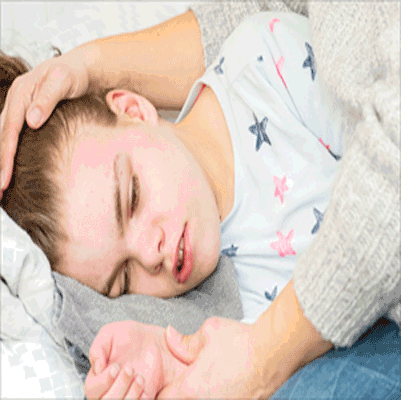
Influenza..
Overview
Influenza may be a infection that attacks your system — your nose, throat and lungs.
Influenza is often known as the influenza, however it is not a similar as stomach "flu" viruses that cause diarrhea and expulsion.
Symptoms
- Fever over 100.4 F (38 C)
- Aching muscles
- Chills and sweats
- Headache
- Dry, persistent cough
- Fatigue and weakness
- Nasal congestion
- Sore throat
